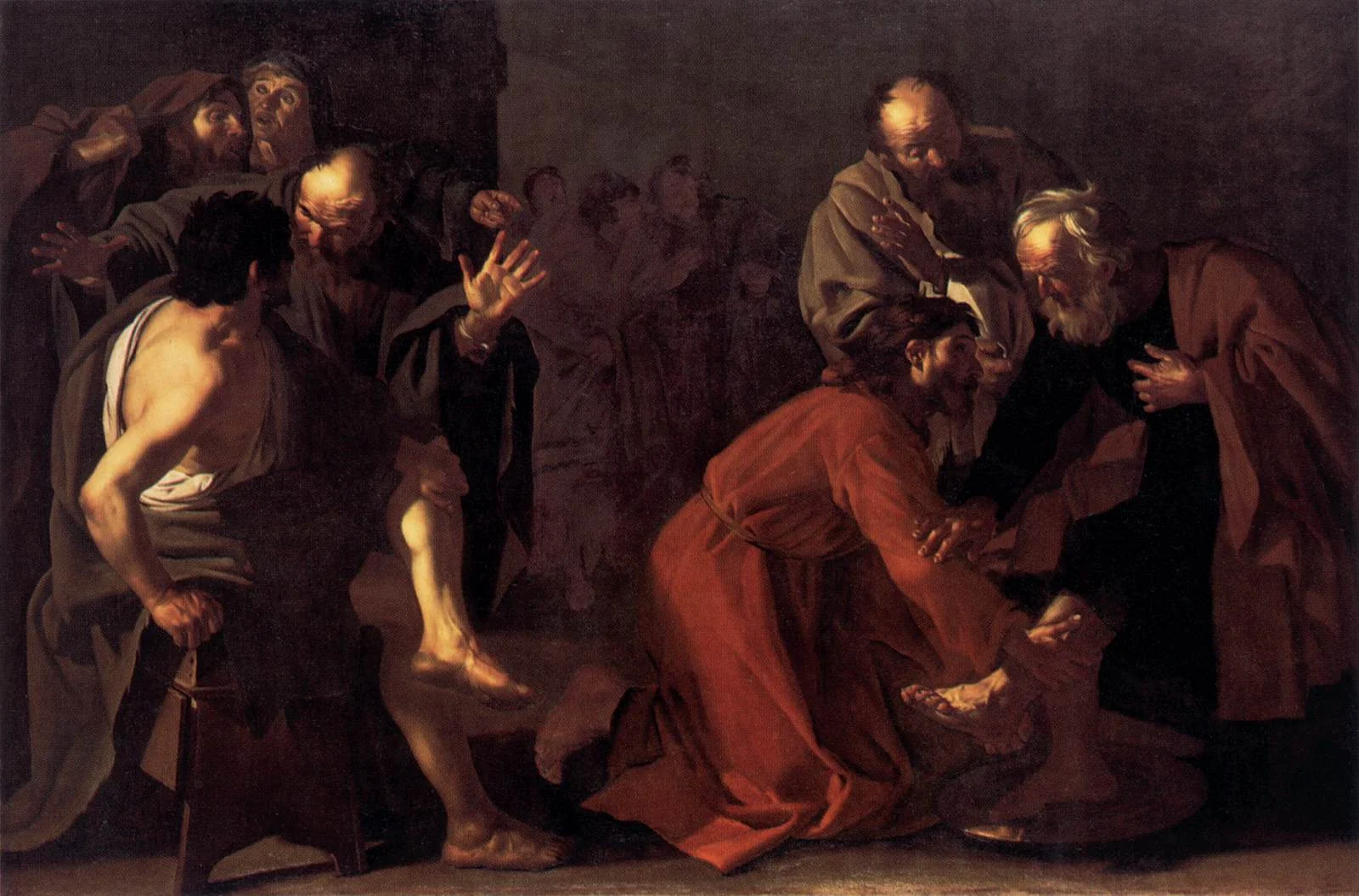For two thousand years, Christians have made an extraordinary claim: that a set of books contains the words of God, written through human authors, and that this Bible is sufficient for “life and doctrine.” With conservative estimates dating the Revelation of St. John to approximately 90 AD, Christians believe that writings from 1900 years ago are both relevant for today and contain truth to cover all circumstances. When stated so baldly, this claim seems ridiculous. But what if it is true? What if the Bible is enough to communicate God’s truth to a chaotic world, no matter how it changes?
The world has changed significantly over the past century: from the horrors of the Holocaust to the shifts of feminism in the West, from the rise of legalized marijuana, to the ever evolving sexual landscape. Such changes, systemic as they may seem, are nothing new. St. Augustine wrote his timeless classic The City of God in response to the apparent end of the world in the 5th century sack of Rome. In 1000 AD, Western Europe was convinced the millennial kingdom was imminent. In 1215, Beijing altered irrevocably with the arrival of Genghis Kahn and the Mongol hordes. In a world where tradition appears immovable yet is gone like a leaf in the wind, does the Bible actually provide the counsel of God?
I believe the answer is yes, and want to illustrate timeless biblical wisdom by examining the microcosm of a single but deeply telling issue: polyamory. Polyamory combines two Latin words—poly, meaning “many,” and amor, meaning “love.” This term describes open relationships which may or may not define themselves as a sort of group marriage, or as a single couple who remain together but pursue other sexual partners. Polyamorous relationships fascinate journalists, and have entered into mainstream public discourse in recent years.
I am not arguing that polyamory is something new; there have always been strange sexual practices. From the mystery cults in Greece and Rome to temple prostitution in ancient Sumeria, aberrant practices have always existed outside the norm of marriage. What is unique about polyamory, however, is that it seeks to become a new normal. Where previous generations have had bizarre sexual cults and practices, the present generation stands out for attempting to make these practices appear normative (by which I mean the attempt for the new practice to replace the traditional). One way in which polyamorous couples do this is by implying that traditional marriage is limited, and consumed by jealousy. They are on the moral high road, allowing all consenting adults to fulfill their desires.
The Bible does not describe any polyamorous relationships. It deals with polygamy, monogamy, adultery, fornication, beastiality, and homosexuality, but does not specifically address this manifestation of human sexuality. Does polyamory defeat the idea of the Bible being sufficient for life and doctrine? No—instead we need to examine how the Bible portrays marriage as a training ground for understanding the concepts of faithfulness and unfaithfulness, allowing us to discern that polyamory threatens a truly human concept of fidelity. The prophet Hosea can help us on this journey.
Hosea is written by the eponymous prophet, one of a group of 10th-8th century BC men who preached messages from God to the kingdoms of Israel and Judah before the Assyrian destruction of northern Israel and the Babylonian exile of southern Judah. He wrote before Israel’s destruction, and communicates a message of judgment and eventual restoration. Where Hosea becomes unique, however, is the way in which God commanded him to show his message. The book opens with “When the LORD first spoke through Hosea, the LORD said to Hosea, “Go, take to yourself a wife of whoredom and have children of whoredom, for the land commits great whoredom by forsaking the LORD” (Hosea 1:2). Hosea proceeds to marry Gomer, who remains faithful to Hosea until the after the birth of their first child. The fatherhood of her second two children, however, was suspect. Gomer eventually became a prostitute, and was redeemed by her husband. They had a total of three children, each of whom was named to communicate an aspect of Israel’s infidelity.
On one hand, this is the most appalling scene in the prophets. Can you imagine a preacher getting a vision from God saying, “Go! Marry a prostitute! And when she betrays you and goes back to selling herself on the street, go and buy her back from her pimp, and treat her as if she never left.” Hosea does so, and honors God in his obedience. Rather than stopping at shock in methodology, perhaps the better question is, “Why would God use this living metaphor, and this language?”
It is impossible to read this prophecy and miss the pain and horror of what God commands Hosea to do. These actions are not done purposelessly. Instead, God has a clear point. He reaches for universal human experience to communicate how unjustly Israel has forsaken him. The metaphor of the adulterous wife transcends the context of 8th century BC Israel. It is a picture that the whole human race across all of time can recognize as betrayal, as wrong. This transcendence is part of the beauty of Hosea—reading this prophecy does not require background knowledge. Anyone can pick it up and recognize that Gomer betrayed her husband, and caused him great pain, for no discernable reason. The idea of a woman selling her body is also a universal phenomenon, recognizable through literature where it is not visible on the streets. The vocabulary and metaphor allows the book to transcend the geographic and temporal context and appeal to perennial human experience.
As such, the book communicates on at least two levels. On the divine level, Hosea teaches the reader about God’s response to the betrayal of his covenant with Israel. There will be consequences to that betrayal. It also shows God as the jealous husband, who wants sexual exclusivity with his wife (which in this case represents exclusive worship by his covenant people Israel). On a human level, the reader sees Hosea’s unfailing love for a woman who clearly does not deserve it. Gomer should have been tried in court, divorced, and (under the fullest application of the law) even stoned. Instead, here is the faithful husband who buys her back, and restores her to honor. Hosea’s faithfulness functions as an example for how husbands should love their wives.
Hosea is a beautiful book of prophecy and poetry. Its use of extended metaphor allows it to appeal to all times and places communicating a high ethic of love while also showing the consequences of covenant betrayal. It foreshadows the gospel, where all mankind is Gomer (as we worship other gods and ignore our rightful LORD) and Jesus is Hosea (painfully purchasing the human race from Satan’s reign at the cost of his own blood).
What then does Hosea have to say about the topic of polyamory? Hosea illustrates the biblical teaching that sexuality should occur within fences, within the confines of marriage. When sexuality occurs outside these fences, there are consequences. Polyamory functions as a denial of this foundational principle. It begins with the premise that there should be no fences, no limits to human desire. For the polyamorist, marriage is not predicated upon sexual exclusivity but upon emotional closeness which can exist between multiple partners. Instead, the polyamorist argues that desires are the highest value and that when one person desires sexual intimacy with another, no marriage agreement should stand in the way. Polyamory goes as far as to argue that those who insist on traditional mores limit themselves, and fail to experience the best pleasures.
Where Hosea provides a living metaphor of faithfulness and infidelity, polyamory destroys the structure within which faithful marriage can exist. It denies a fundamental part of our human nature—marital jealousy is right and proper, according to God’s example in dealing with Israel. Polyamory holds up jealousy as evil, where Scripture holds up faithfulness of one spouse as a good. Hosea shows us that these two visions of the good life stand in opposition: they cannot both be true. Either polyamory is correct, and traditional marriage is enslavement to one partner, or biblical morality is correct that as people we are made for exclusive love in marriage just as we are made for exclusive worship of the Triune God.
For two thousand years, Christians have looked to the Bible as their source of how to live life, and what to believe. The world is always a different place; each generation wrestles with how to answer fundamental questions about what it means to be human, how to live the good life, and where to find wisdom. The Bible serves as the Christian bedrock. For all that this world may shift, evolve, and metamorphose, the teachings of Scripture remain true. Regardless of what new phenomena develop, whether it is the national legalization of marijuana, the widespread acceptance of homosexual marriage, or the normalization of polyamory, the Bible still holds the words of the Living God. Scripture is sufficient for all circumstances, and remains our source of life and doctrine.
Image: "Hosea" by Peter. CC License.
























